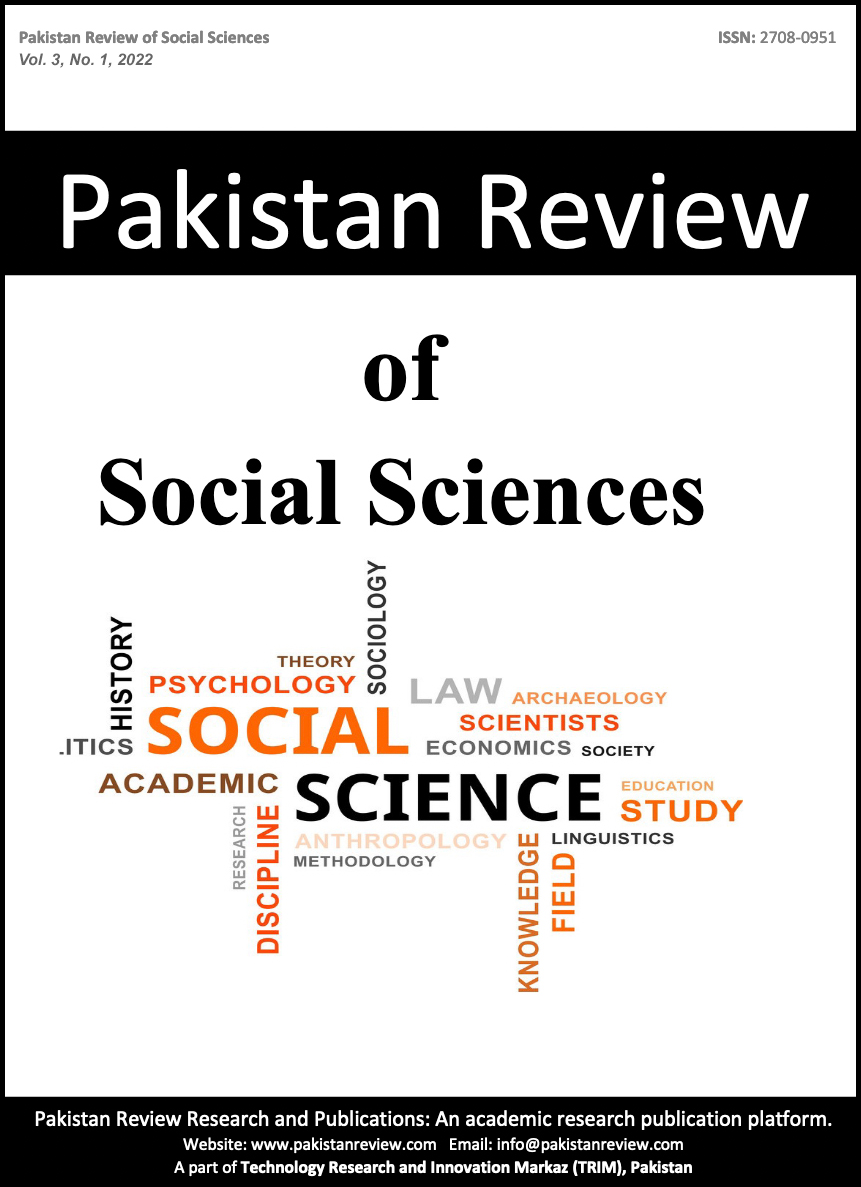Israel-Palestine Conflict and the Role of International Organizations
Keywords:
Belfour declaration, Palestine, Zionism, Israel recognition, Israel recognition, Arab-Israel war, Masjid e Aqsa, Gaza strip, UN, OIC, EU, Hamas and PLOAbstract
The Israel Palestine conflict has been an unresolved issue for more than 70 years with occupation of Israeli forces and convicted humanitarian crisis in Palestine. The past of Palestine before World War-I was not same as now. The Jews started to migrate into the Middle East and Palestine for formation of Jews state through Belfour declaration as the Palestine remained a colony of Britain in 19th century. The Jews started their Zionist movement in the occupied region by threatening innocent people of Palestine. The land of Palestine is very important for all in religious point of view i.e Jews, Muslims and Christians. The land of Israel was recognized by UN in 1948 as an independent and sovereign state. The Israel with the support of western countries remained victorious in the Arab-Israel war. The role of organization like UN and OIC put neutral stance on Palestine issue with series of some failure and successes. Israel increased its build up against Hamas and PLO which were involved in attacks in Tal -Aviv. These terrorist activities of non-state actors involved in the conflict provide a chance to Israel for increasing its crimes in Palestinian territories on vindicating of supporting terrorist groups. In 2020, Israel was recognized as a full member of UN and until now the independence of Palestine has not been decided yet and it might be difficult to resolve it in near future.
Downloads
Published
Issue
Section
License
Copyright (c) 2022 Fahim Ghaffar Khan

This work is licensed under a Creative Commons Attribution 4.0 International License.
Submission declaration
Authors retain the copyright to their work and grant the Pakistan Review of Social Sciences (PRSS) the right of first publication under a Creative Commons Attribution 4.0 International (CC BY 4.0) license. This license allows others to share, adapt, and reuse the work for any purpose, including commercial use, as long as appropriate credit is given to the original authors and the journal.
By submitting a manuscript, authors confirm that the work has not been published previously (except as an abstract, lecture, or academic thesis), is not under review elsewhere, and has been approved by all authors and relevant authorities. Once accepted, the article will be openly accessible under the CC BY 4.0 license, ensuring wide dissemination and reuse with proper attribution.






